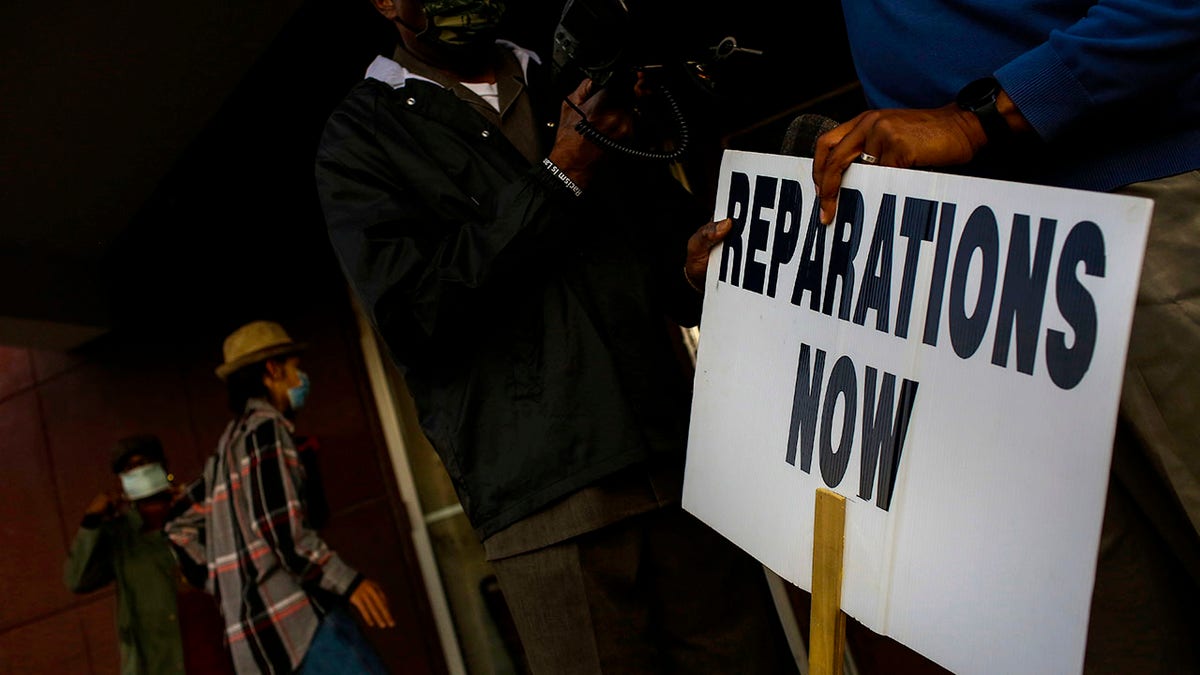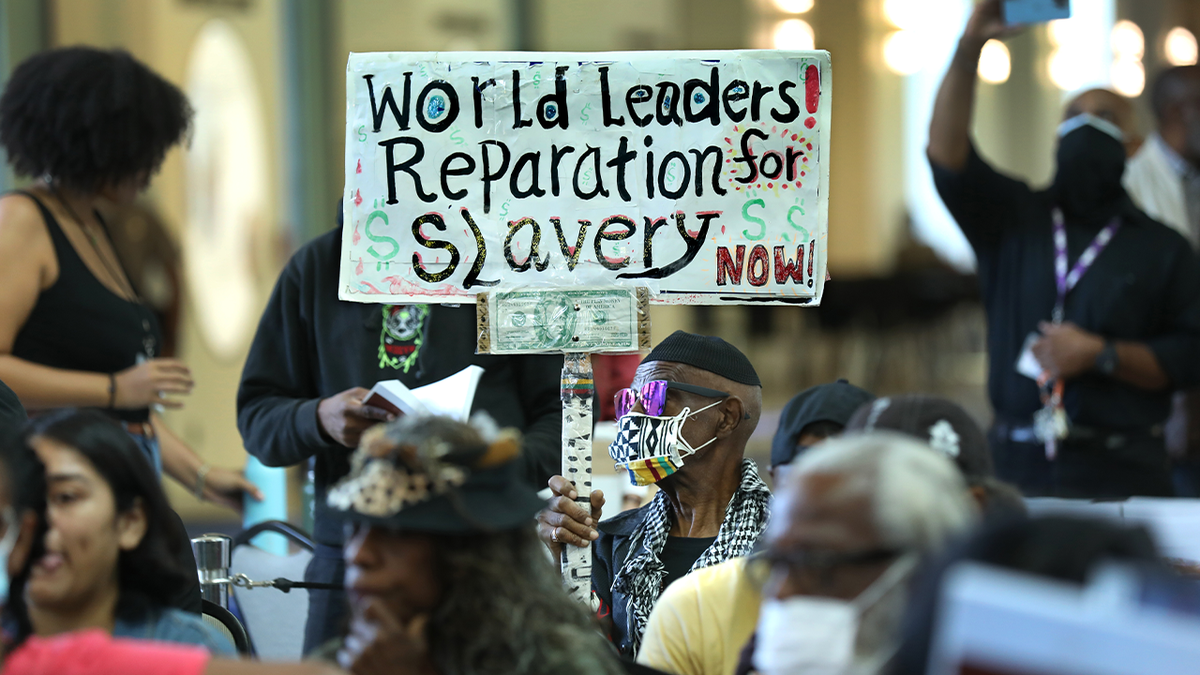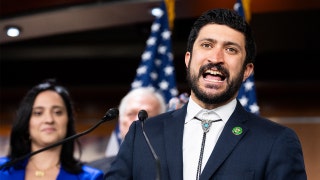Georgia county commissioner blows whistle on Reparations Task Force after alleged calls to silence debate
Fulton County Commissioner Bridget Thorne is speaking out after one of her appointees to the Reparations Task Force was allegedly ordered not to speak to the media.
The Atlanta city council took a step toward establishing a task force to explore reparations for the Georgia capital on Monday.
It was not immediately clear what reparations would look like, but the "City of Atlanta Reparations Study Commission," would aim "to research the extent of the City of Atlanta’s participation in the legal discrimination of African American residents and to provide recommendations for appropriate reparations," according to the agenda item.
"We don't want to interfere with the federal efforts," Atlanta city council member Michael Julian Bond, who was behind the resolution, told Fox News Digital. "We just want to take the best of what is possible for a municipality to do. Atlanta has a similar history to other cities where egregious things, as in the way of public policy decisions, have affected the African-American population since reconstruction, so we have formulated our committee to look historically, economically and socially at the events, persons, places or things that were public policy generated that malaffected the African-American population in Atlanta."
Bond explained that because cities can't make direct payments to citizens under Georgia law, reparations would likely take the form of programs to mitigate racial gaps rather than direct monetary payments.

A pastor holds a reparations now sign after leading a protest from City Hall in Oklahoma. Other African Americans across the country are demanding major institutions like the Universities of Alabama and Georgia to compensate them for land taken from them in the past. ((Photo by Joshua Lott/The Washington Post via Getty Images))
"But we could create programs or give or create incentives for those who can prove a legacy of discrimination directly from the Atlanta city and that is what this group will be empaneled to do," Bond said.
"They may come back and say hey, maybe we’ll give folks some down payment assistance, maybe we’ll have some type of incentive program for them for small business or something of that nature," Bond told Atlanta News First. "So this will be the job of this committee, to make those recommendations and bring them back to the City of Atlanta."
Bond told Fox News Digital that nonprofits could serve as a workaround in providing reparations.
"One of the discussions is not really detailed in the resolution is, that perhaps a nonprofit can be created by the city to probably take in donations, raise funds and if wherever possible, they don't have a nonprofit, wouldn't have the same limits that the city government has," he said.
Dr. Cynthia Spence, a professor and reparations expert with Spelman College, echoed Bond's sentiment about reparations programs, describing it as a "necessary process for all of us to engage in."
"Those outcomes have included things like reducing property taxes, providing monetary payments to Black individuals – African Americans in communities – to help with housing, there have been discussions about educational access," Spence said. "Universities have been involved in this reparations work."
"This isn’t a new idea, it can happen, it’s been done before, and it was actually a promise that was made that was not delivered upon," Spence said. "It’s very complex, but the complexity should not prevent us from actually moving forward because we can all agree that harm was done."
Reparations have also been considered in Fulton County, Georgia, which is home to Atlanta, but a Republican commissioner recently spoke to Fox News Digital after two of her appointees to the county's first-of-its-kind Reparations Task Force were allegedly ordered by its chair not to speak to the media.
WHAT COMES NEXT FOR REPARATIONS IN SAN FRANCISCO AND CALIFORNIA
In 2019, Evanston, Illinois, created a government-funded reparations program and two years later, in March 2021, the Evanston City Council voted 8-1 to approve a reparations plan that would provide $25,000 for qualifying Black residents to address harms caused by a pattern of housing discrimination and segregation that existed between 1919 and 1969. The move made the Chicago suburb the first city in the country to provide government funds to address past discrimination of Black Americans in America.
As of Aug. 16, 2023, Evanston had disbursed $1,092,924 in reparations funds through the Local Reparations Restorative Housing Program.
However, many critics remain wary of reparations. Many Americans believe reparations make increasingly less sense in American society. According to a recent report by the Manhattan Institute, it would cost taxpayers an estimated $15 trillion to close the Black-White wealth gap.
ST. LOUIS COMMITTEE DISCUSSES REPARATIONS FOR 1917 MASSACRE OF BLACK RESIDENTS

Los Angeles, CaliforniaSept. 22, 2022Los Angeles long-time resident, Walter Foster, age 80, holds up a sign as the Reparations Task Force meets to hear public input on reparations at the California Science Center in Los Angeles on Sept. 22, 2022. (Carolyn Cole / Los Angeles Times via Getty Images) (Getty)
"That logic becomes much harder to sustain when you have large groups of recent immigrants who are very obviously not implicated in historical injustice and who are also themselves often systematically disadvantaged," Manhattan Institute fellow Charles Fain Lehman, who conducted the study, told Fox News Digital. "Asking those people to take responsibility for injustices 150 years ago is not something they are necessarily willing to swallow."
Because many Americans did not have ancestors living in the U.S. in the slavery era, Lehman said he believes it is unjust to ask descendants of post-Civil War immigrants to foot the reparations bill and "with each passing year, immigration further shrinks the population share plausibly eligible to pay a debt for slavery."
Reparations have also been proposed or are expected to be implemented in multiple California cities; Fulton County, Georgia; Shelby County, Tennessee; Boston; Detroit; St. Paul, Minnesota; and Durham, North Carolina.
For more Culture, Media, Education, Opinion and channel coverage, visit foxnews.com/media.
Fox News' David Rutz and Jeffrey Clark contributed to this report.









































